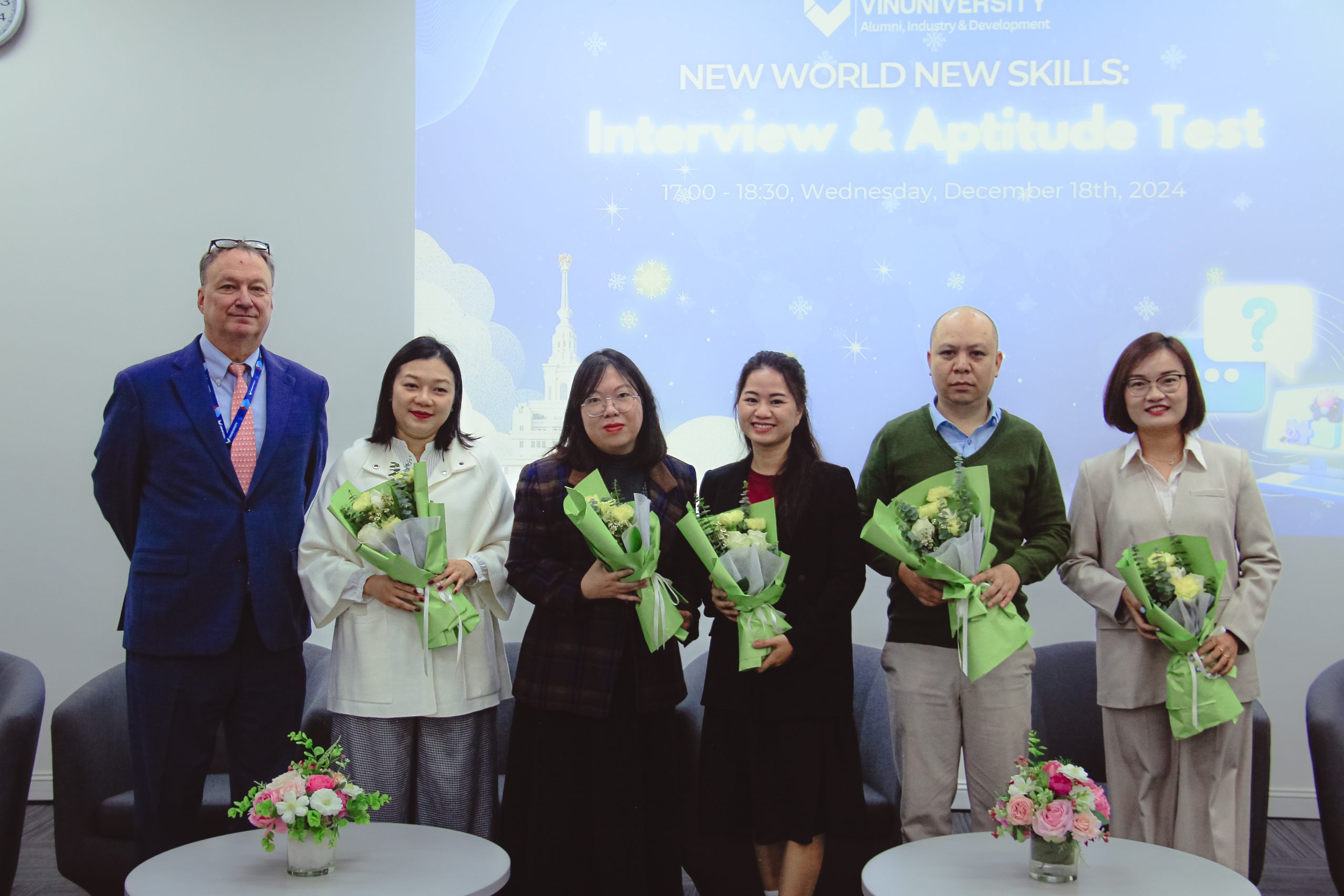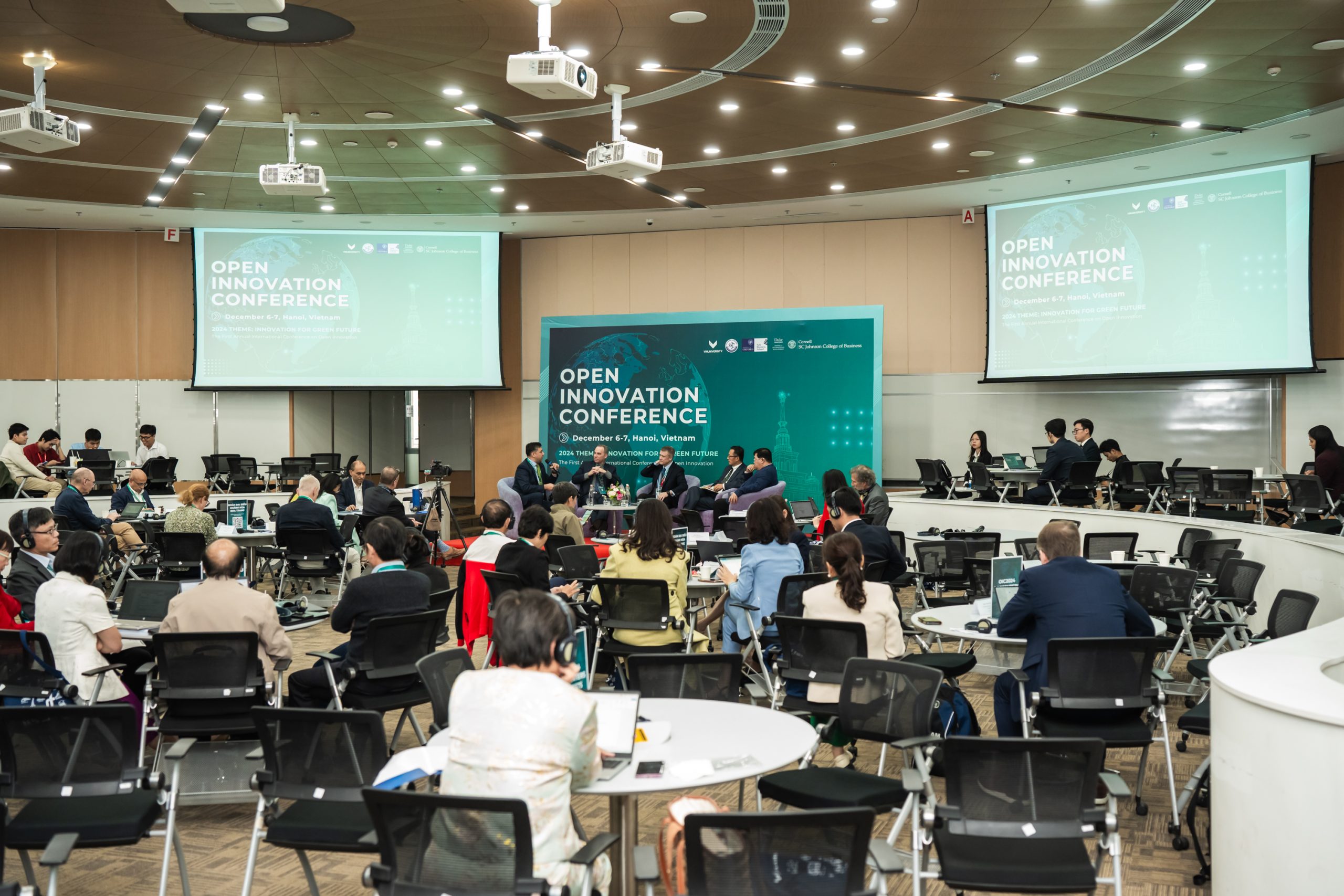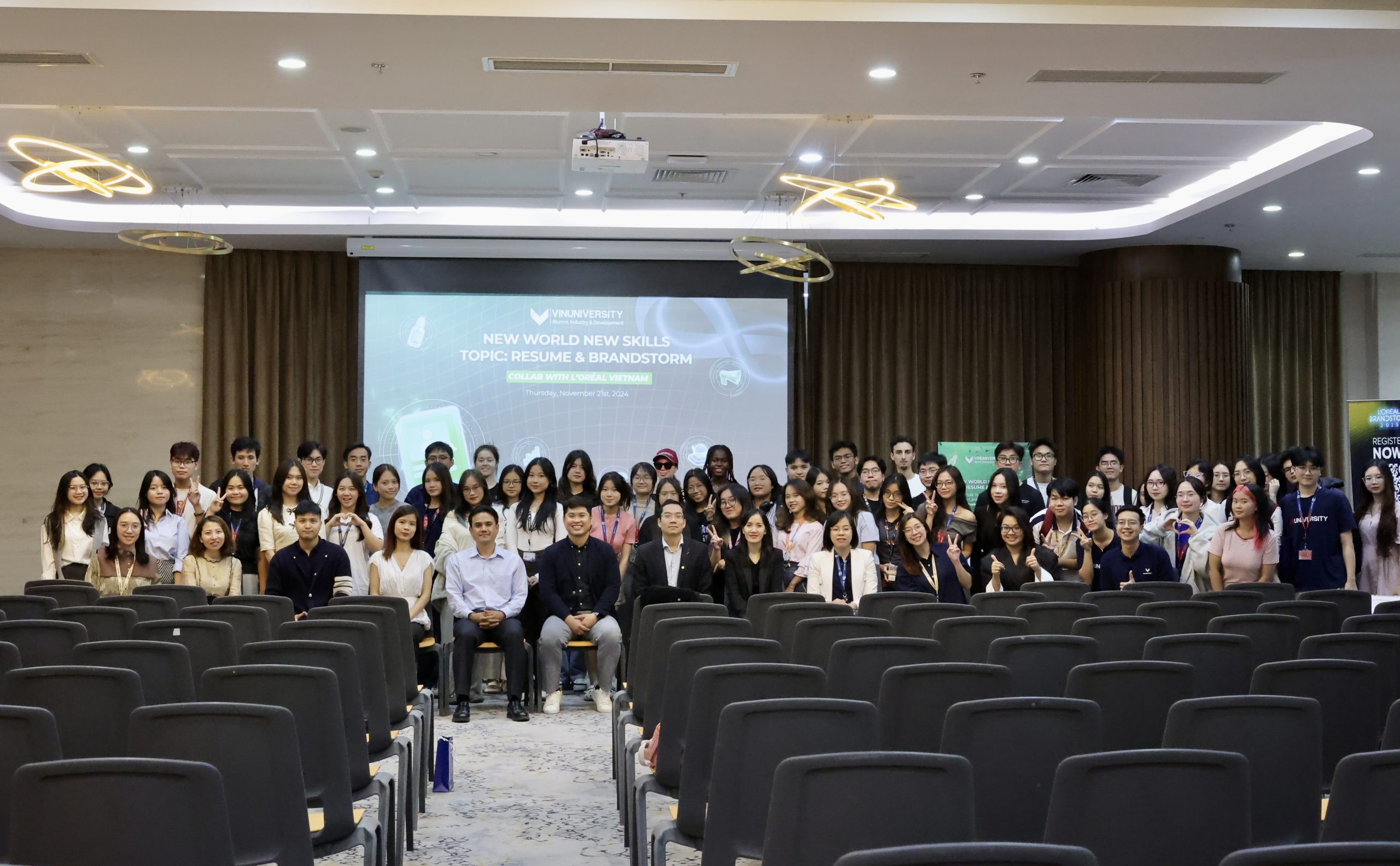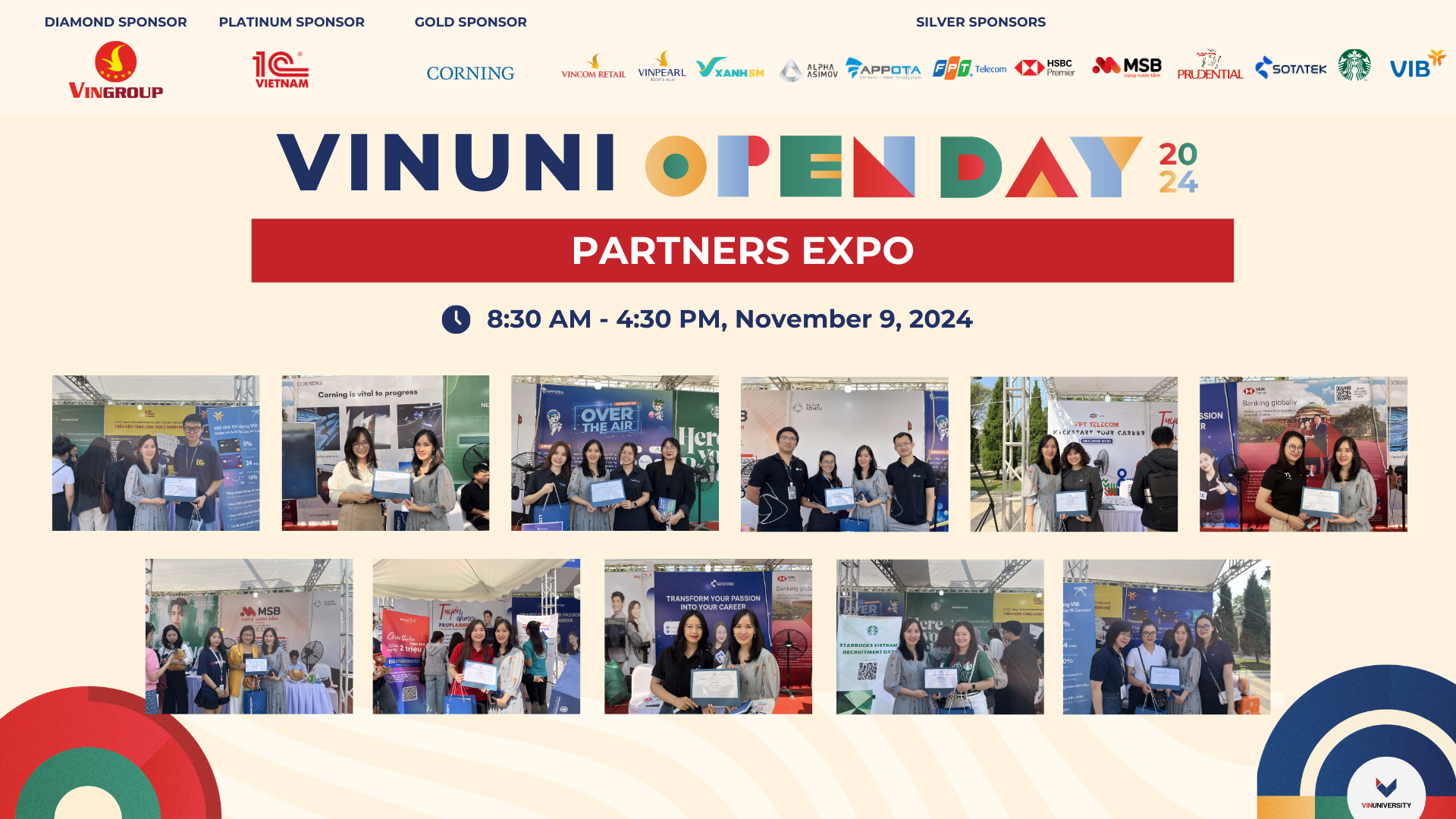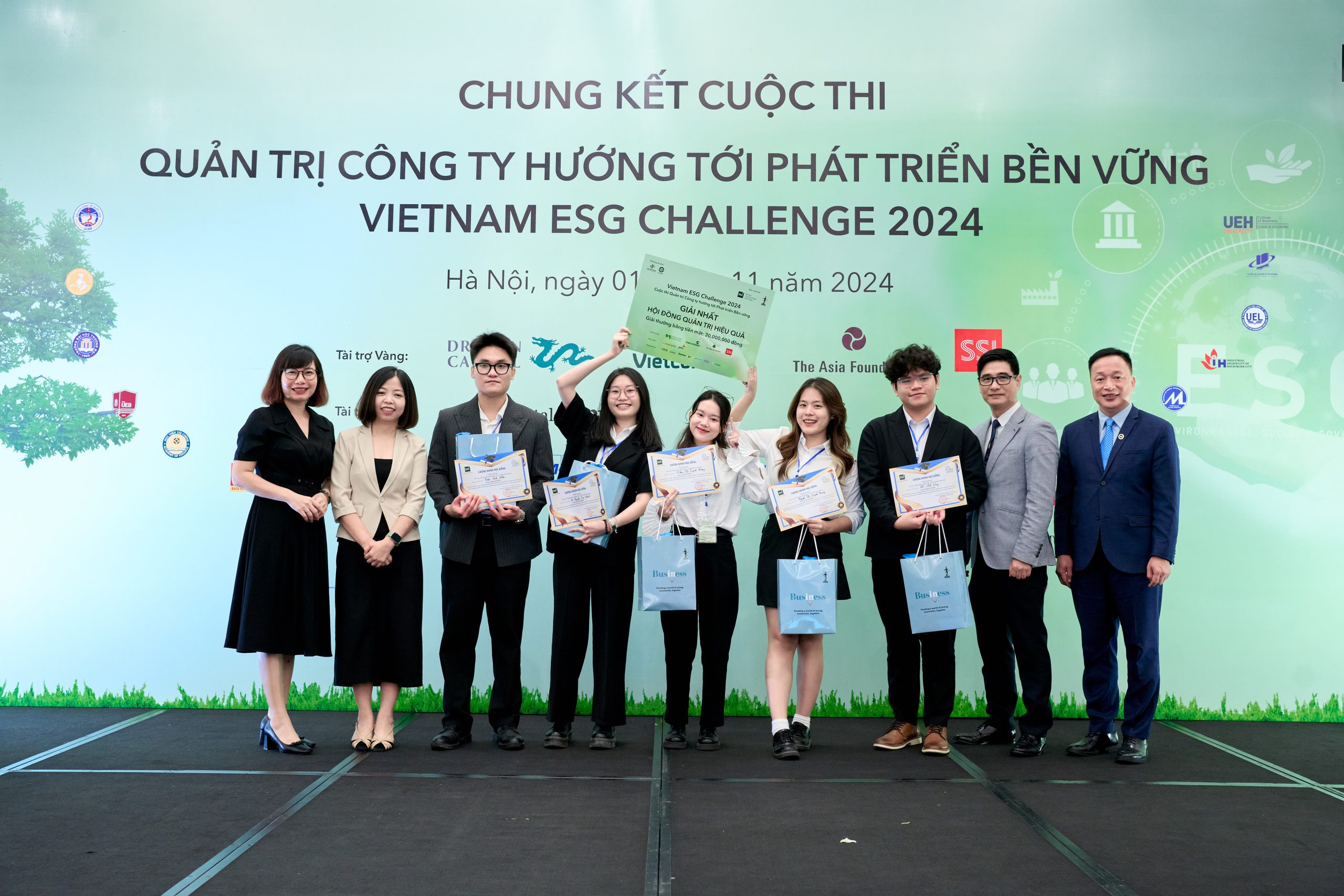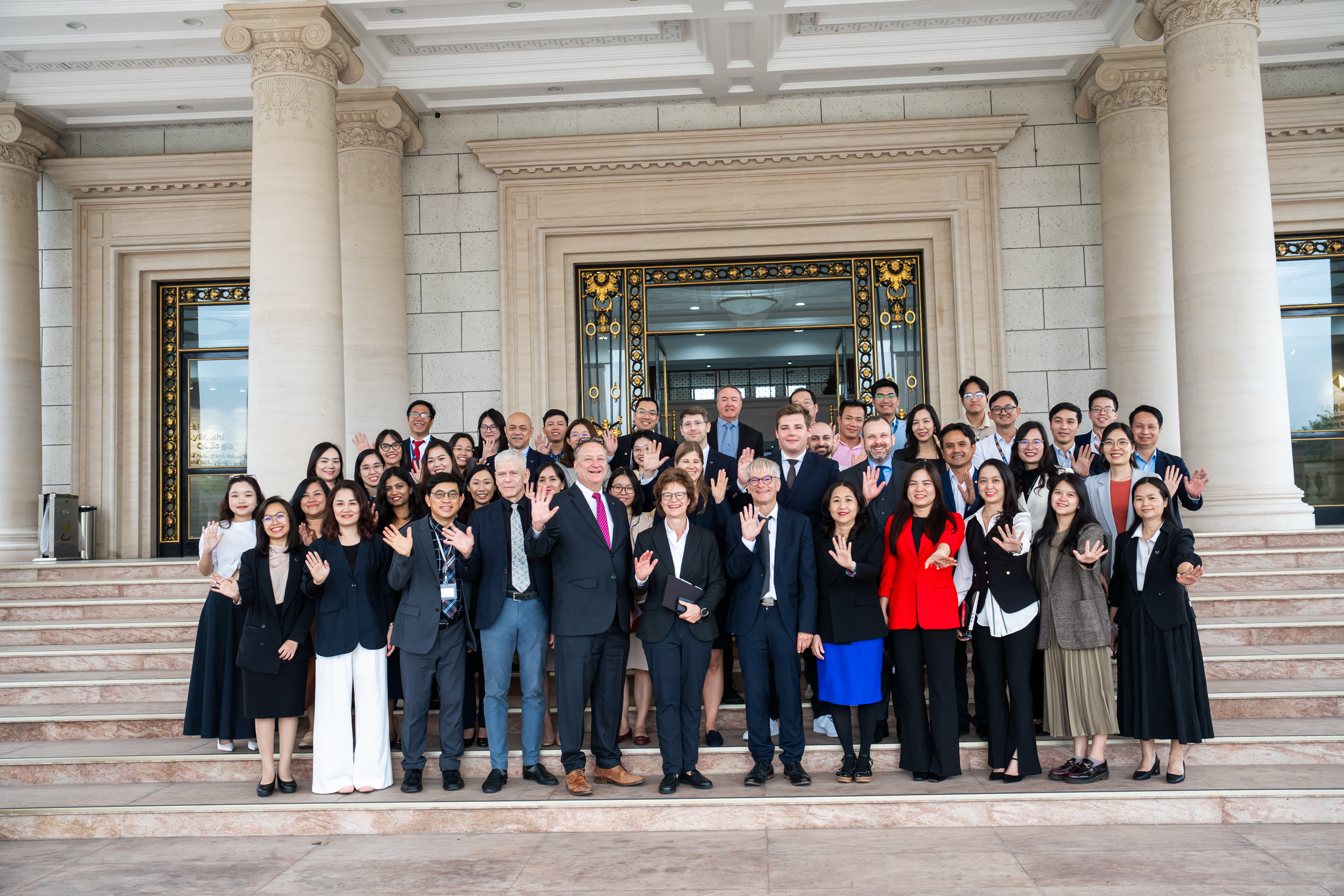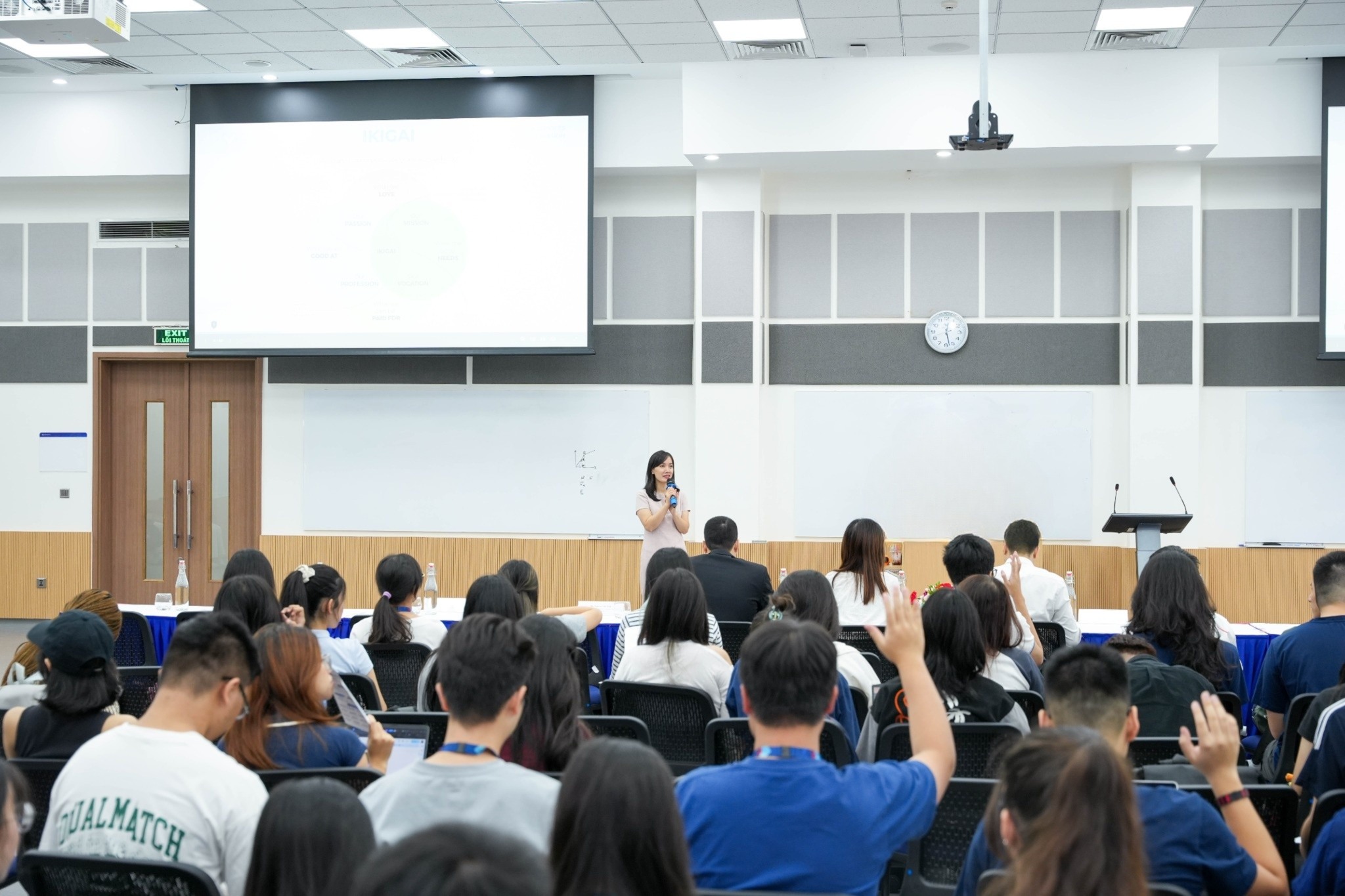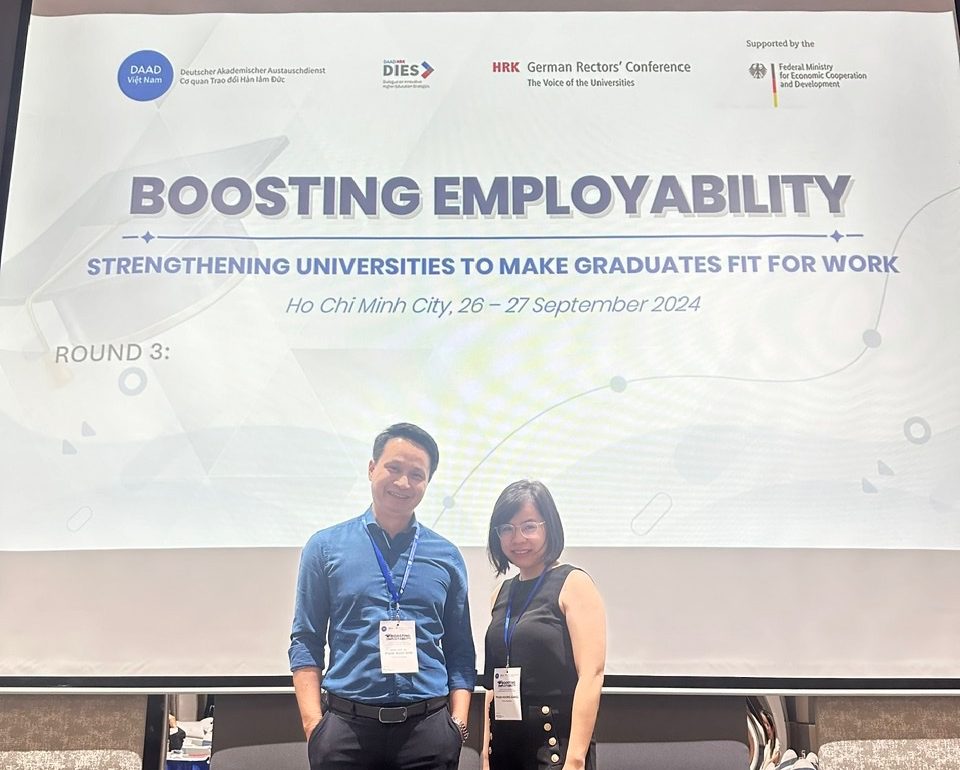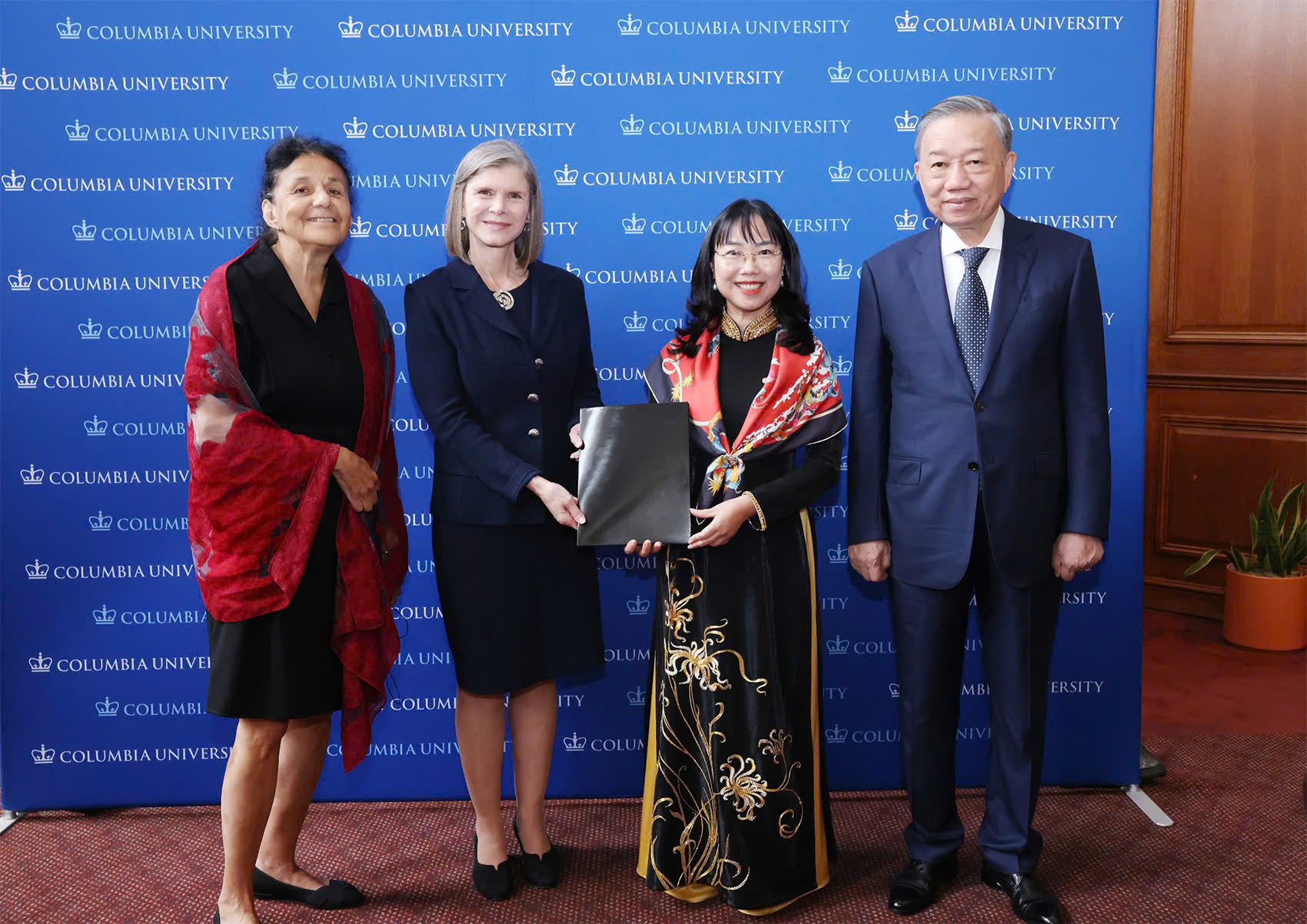With the “golden” ratio of lecturers and professors to students of 1/6, right from their first year, VinUni students have the opportunity to contribute to research projects and scientific articles. More importantly, throughout their studies, students of this excellent institution are always being “exposed” to real-world environments, earning credits in exchange or even getting paid for their outstanding contributions.
Research participation right from freshman year
Phan Nhat Huy is a VinUniversity College of Engineering and Computer Science student who, since his freshman year, has been working as a research assistant for a project on mobile application development for diagnosing cardiovascular diseases using a signal rhythm screening algorithm that can detect abnormalities in the electrocardiogram. Huy’s tasks involve data collection, raw data processing, and creating standardized frameworks for conducting the experiments. The project is led by Dr. Do Danh Cuong, Lecturer of the College of Engineering and Computer Science (VinUniversity), with the aim to facilitate early detection of the disease, thereby reducing the number of deaths incurred. Prior to becoming a VinUniversity lecturer, Dr. Cuong has had many years of work and research experience at the University of Cambridge (UK). He was also a member of the team that invented a new strain sensor, which consumes only 1/1000 the energy required by others of the same type. This invention is being employed by 8Power, Cambridge (UK) and IHI Corporation (Japan) in Internet of Things projects.
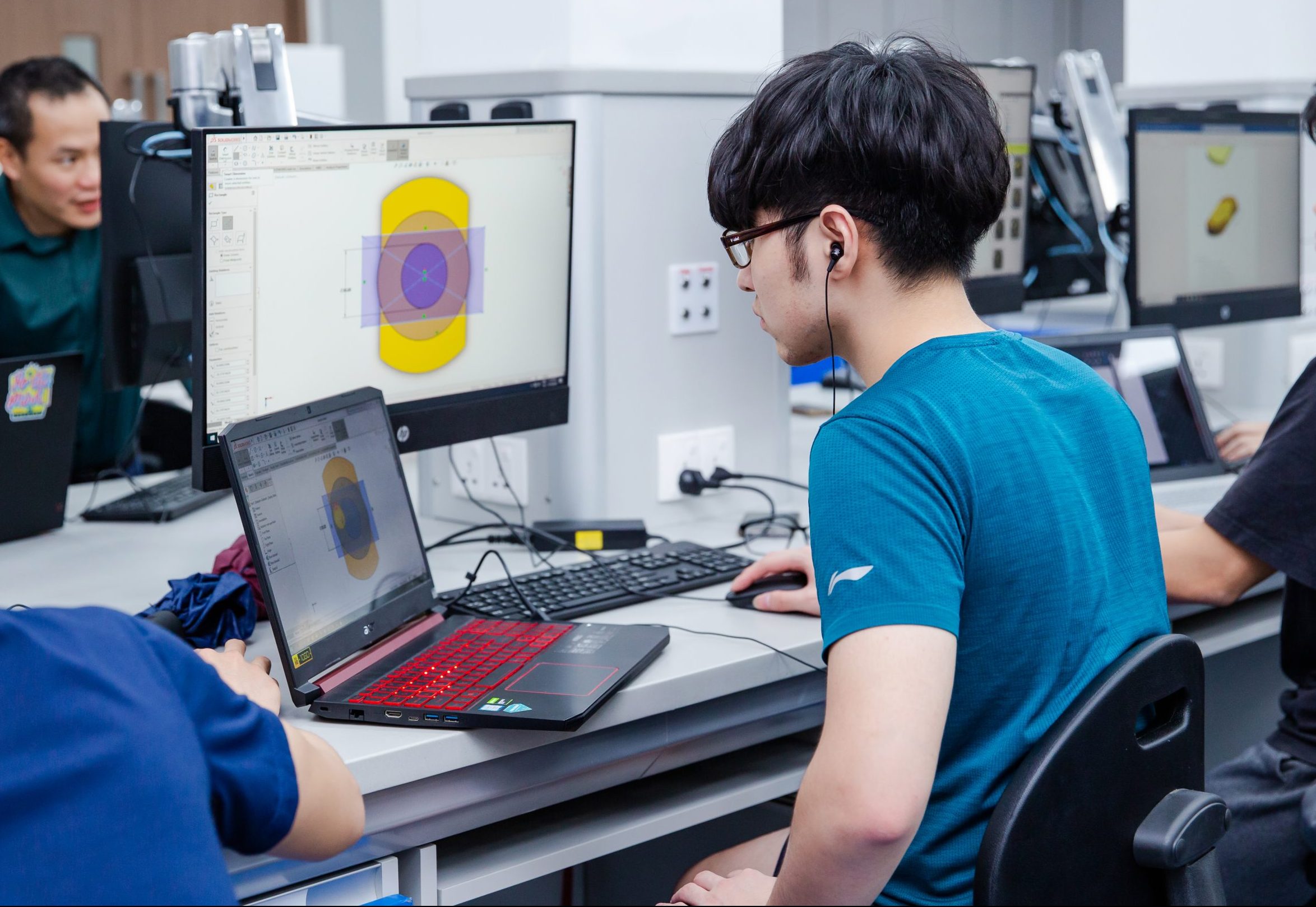
Under the leadership of Dr. Do Danh Cuong, Huy contributed to providing high-performance computing solutions for detecting abnormalities in 12-channel electrocardiograms. “In addition to high performance, the computation model must have fast processing speed in order to run on mobile devices,” Huy shared.
Despite his various experience in academic competitions and previous research, Nhat Huy still learned a lot from this research project. Huy shared: “Since I had never built standardized frameworks by myself, the pressure to do well right from the first time was inevitable. But above all, self-study and self-discovery of new knowledge helped me absorb a greater amount of knowledge more effectively.”

Additionally, Phan Nhat Huy is also participating in a project to develop a medication monitoring and management application called VAIPE, which allows users to log their medication schedule and reminds them to take their medication as prescribed. With this application, the user’s medication history and related health records are also stored to facilitate future disease prevention. Through this project, Huy was able to learn from VinUniversity professors and engineers from VinBigdata Research Institute and Hanoi University of Science and Technology.
These studies, on the one hand, present major challenges for first-year students by forcing them to solve unanswered questions; on the other hand, they open up opportunities for students to develop the problem-solving skills of real engineers.
Thanks to support from lecturers and professors, students gain access to an international research network and are exposed to the most cutting edge technologies currently in development worldwide. More importantly, according to Prof. Do Ngoc Minh, VinUniversity Vice Provost, participating in scientific research from freshman year helps students gradually build the skills and experience required to become independent researchers. This gives students a great advantage in their future studies and research.
“Research for community service”
VinUniversity is one of the few universities that allows students to participate in professors’ scientific research projects from their first year. At the moment, there are nearly 20 VinUniversity-led research projects with first year students’ participation. In addition to the paid Research Assistant position, students can also work as independent researchers. Rather than being paid, students accumulate research credits in the form of electives.

The highest goal of VinUniversity’s scientific research projects is “Research for community service”. Dr. Le Mai Lan, Vingroup Vice Chairwoman and VinUniversity President, emphasized that “VinUniversity focuses on researching key areas that have positive impacts on the community. All researches are based on science and technology, prioritizing interdisciplinary integration”.
In 2020 – 2021, over 70% of VinUniversity professors’ and lecturers’ projects and articles are collaborations with international scientists. [1] “Had VinUniversity’s projects not been widely applicable, community-centered or on par with international standards, we would not have been able to engage international scientists”, stated Prof. Do Ngoc Minh, VinUniversity Vice Provost.
Besides investment from the school, the 1/6 professors and lecturers / students ratio at VinUniversity creates the ideal environment for learning and research. A similar format is being employed by many of the world’s top universities. The average faculty/student ratio of universities in the world’s top 200 is roughly 1/12.
“With the guidance of world-class professors, coupled with its interdisciplinary focus, connections with domestic businesses, and network of international partners, VinUniversity seeks to promote projects in smart healthcare and smart tourism – services in the next academic year” – shared Prof. Do Ngoc Minh.
In fact, at VinUniversity, teaching and research go hand in hand. Research not only helps create new knowledge but also serves as inspiration for students. According to Prof. Minh, a VinUniversity “specialty”, which not every renowned institution has, is the fact that freshmen have the opportunity to take part in research projects led by professors and lecturers. Instead of simply enjoying the fruits of research, students gain early exposure by directly taking part in this knowledge-creation process and become familiar with new knowledge in various fields.
—————————–
[1]
- Among 53 Scopus indexed papers published by VinUni faculty in the Academic Year 2020-21, 39 papers are co-authored with international collaborators.

